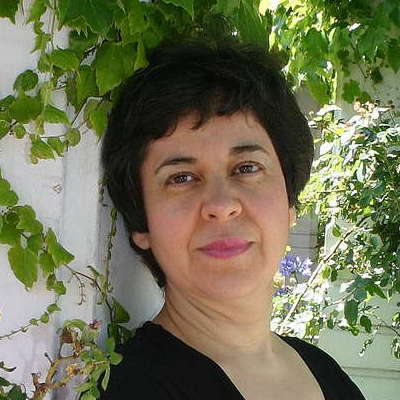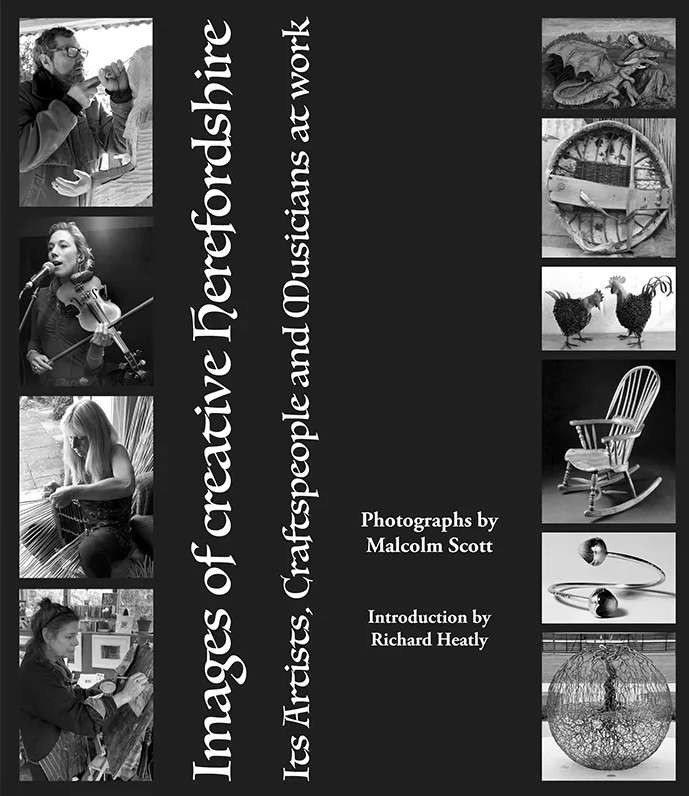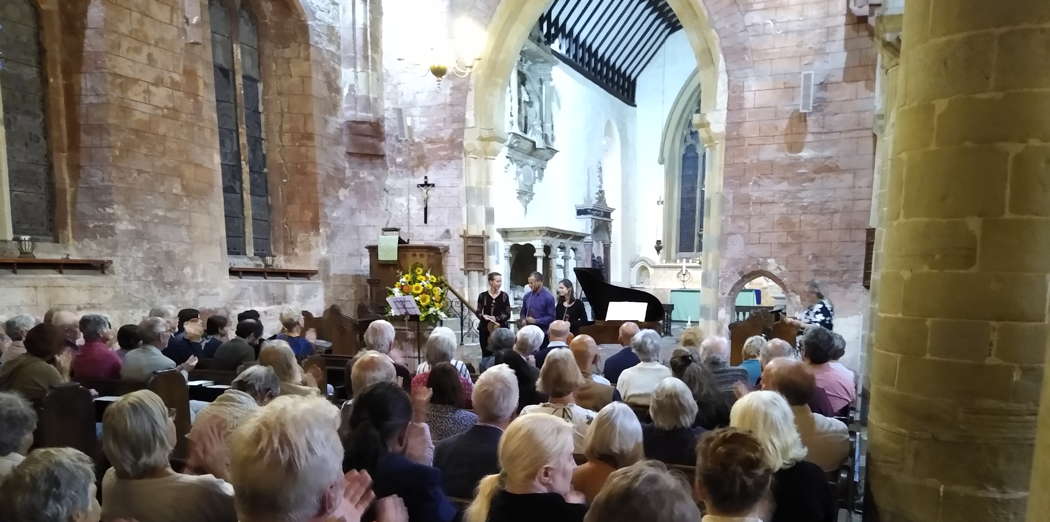- John McCabe CBE
- Arcana
- René Pape
- West Cork Chamber Music Festival
- Kirchheimer
- British Pie Awards
- Judy Zhou
- Rádio MEC-FM
 DISCUSSION: John Dante Prevedini leads a discussion about Composers, individuals or collective?, including contributions from David Arditti, Halida Dinova, Robert McCarney and Jane Stanley.
DISCUSSION: John Dante Prevedini leads a discussion about Composers, individuals or collective?, including contributions from David Arditti, Halida Dinova, Robert McCarney and Jane Stanley.
 SPONSORED: A Seasoned Champion of New Music. Argentinian-American pianist Mirian Conti in conversation with Andrew Schartmann.
SPONSORED: A Seasoned Champion of New Music. Argentinian-American pianist Mirian Conti in conversation with Andrew Schartmann.
All sponsored features >>
Deep Friendships
KEITH BRAMICH is impressed by Byron Wallis, Bérengère de Gromard and Jeanne Pinget's concert in memory of Malcolm Scott
On Friday 1 September 2023 the Church of St Edberga (dating back to the twelfth and thirteenth centuries) in the village of Leigh (pronouced 'Lie', in Worcestershire, UK) was packed for a full-evening chamber music concert with an international flavour, given by three musicians - Byron Wallis, Bérengère de Gromard and Jeanne Pinget. The occasion had been planned to celebrate the life of Malcolm Scott, who had lived locally for many years. The concert consisted of music by some of Scott's favourite composers - J S Bach, Dvořák, Fauré, Mozart and Shostakovich.
Malcolm Scott, who died in 2022, aged eighty-six, was a London-born engineer and medical physicist, who studied at Birmingham and Harvard then continued to a successful research and teaching career based at Birmingham University. Scott's work was used, for example, to develop a form of cancer treatment using neutron capture therapy - a kind of radiotherapy useful for treating brain tumours. Later, he worked for the local charity Headway Worcestershire, which provides support to adults suffering from brain injury. Scott was also a keen photographer and intrepid traveller who published several volumes of his photographs, including Images of Creative Herefordshire: Its Artists, Craftspeople and Musicians at Work (2015).

Images of Creative Herefordshire: Its Artists, Craftspeople and Musicians at Work.
Photographs by Malcolm Scott. Introduction by Richard Heatly.
© 2015 Logaston Press. ISBN: 978-1906663940
American violinist Byron Wallis was born in Indianapolis and studied at the Eastman School of Music and then at the University of California. Byron's parents encountered the young Malcolm Scott as a student in the USA and were so impressed by him that they chose Malcolm as Byron's middle name. Scott and Wallis became friends, the friendship deepened and endured, and they made various trips together. This concert grew from their friendship, beginning with Wallis on his own, playing J S Bach's Sarabande and Gigue in C (originally for solo cello) on viola, an instrument he learnt to play during the Coronavirus pandemic. Leigh Church has a great acoustic - the sound I heard from near the back of the nave was crystal clear, the large audience quiet and attentive, and I thought that the Bach came across with a slight folky feel.
After five years as concertmaster of the Great Falls Symphony in Montana, Byron Wallis moved to Paris, where he has performed with the Orchestre national d'Île-de-France, Les Siècles, Insula Orchestra and, from 2015, l'Octuor de France. On one of Wallis' previous visits to Worcestershire, two of his musician friends came along, where they met Scott. Both girls returned to pay their respects to Scott in this concert, and in the next piece, Wallis was joined by Bérengère de Gromard, an accomplished violinist and teacher, who appears regularly throughout Europe and the USA as soloist and leader with various freelance orchestras.
Mozart's Duo in B flat for violin and viola is in three movements. The first has an Adagio introduction followed by a nimble Allegro in which Mozart makes clever use of imitation, sequences and pauses. The central Andante cantabile was poised and gentle, with a rocking feeling. Finally came a 'theme and variations' movement with a neat, nearly throw-away ending. The concert was very professionally delivered, and there were only two places during the whole evening where I felt a slight uncertainty in the playing - both in the last movement of this undoubtedly difficult Mozart Duo.
As Wallis explained in his spoken introductions, the first half of the concert was designed as a kind of crescendo, in terms of the number of fingers used for each work - four for the (solo) J S Bach, eight (on violin and viola) for the Mozart, and then ten fingers for Jeanne Pinget's expressive and nicely phrased Fauré Nocturne (No 4 in E flat, Op 36, circa 1884) for solo piano. This gave us a chance to appreciate Leigh Church's grand piano, particularly in Fauré's wandering pedalled scalic passages. Jeanne Pinget is currently studying piano at the Conservatoire Royal de Bruxelles in Belgium. She has also played violin since she was very young, and currently performs professionally on both instruments.
After the interval, reaching, as it were, the maximum number of fingers(!), all three performers took part in each of the three pieces. First there was lovely, poised playing from them all in more Mozart - this time the central C minor Andante from the Sinfonia Concertante, K 364, with de Gromard playing violin and Wallis on viola, who got some audience laughs when he announced Pinget as the 'orchestra' (playing a piano reduction).
Wallis then switched to violin for some rather unusual Shostakovich - Five pieces for two violins and piano, based on the Russian composer's ballet and film scores. This is light music, rarely sounding like the Shostakovich we're normally familiar with. There's a dancy Prelude, followed by a very jolly, humorous Gavotte and an Elegy that still feels quite light. Somehow the Waltz is more serious and wistful, in a minor key, with a rather beautiful, quiet, unusual ending. Then, in total contrast, the final Polka is very lively, sporting humorous sudden loud chords and another throw-away funny ending which includes a mischievous quote from Hearts and Flowers.
For the final work, Pinget switched to violin for a terrific performance of Dvořák's expertly crafted four-movement Terzetto in C, Op 74, complete with American folk music influences, slow halting intros and a dramatic tremolo section, above which the first violin soars. It was a perfect ending to this concert, and I hope that the retiring collection - split equally between Headway Worcestershire and Leigh Church - raised a large amount in Scott's memory.

Applause for, from left to right, Bérengère de Gromard, Byron Wallis and Jeanne Pinget at the end of the Concert in memory of Malcolm Scott.
Photo © 2023 Keith Bramich
Finally, I continue to encourage my fellow writers at Classical Music Daily to publish a disclaimer whenever there's a connection between themselves and the musicians or the concert promoter which might affect the impartiality of their writing. Here, in my case, although I don't know any of these musicians personally, Malcolm Scott and his wife Lillian Somervaille - the concert promoter - were friends of my late parents, who lived in a neighbouring village (where I grew up). Another of Scott's hobbies was campanology (church bell ringing), which he shared with my father, who on one occasion organised a day's bell ringing tour of local villages for Scott and other friends (including Linda Taylor, who was in the audience at this concert), which involved crossing the River Teme (near to where it passes quite close to Leigh Church) using a boat and ropes. This was by no means the most daring of Scott's exploits: in his younger days he drove his Land Rover from the UK to Pakistan, via Turkey and Afghanistan, exhibiting his travel photos in London and later publishing them as another volume, Pakistan: One Man's View (2016). That one man with a view was also a very modest person ... until I started researching for this concert review, I had no idea about many of his achievements. Malcolm Scott's love of and support for his local community can be felt strongly in another published volume of photos: A Village Portrait: Leigh, Worcestershire (2000).
Copyright © 16 September 2023
Keith Bramich,
Isle of Mull, Scotland



